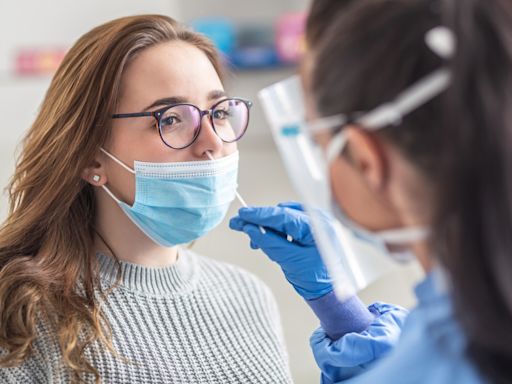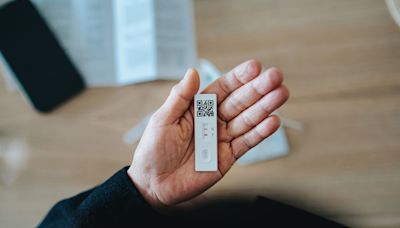Search results
COVID-19 Testing
- What You Need to Know
- Test Types
- What You Need to Know
- Every home in the U.S. is eligible to order 4 free at-home COVID-19 tests. The tests are completely free. Orders will usually ship in 7-12 days.
COVID-19 Testing Free COVID-19 Test Kits. Get free COVID-19 test kits on September 12 from 4-6 p.m. at Columbus Public Health (240 Parsons Ave.), while supplies last. This drive-thru event will also have free lock boxes, naloxone and fentanyl test strips. COVID-19 testing is widely available at healthcare providers and pharmacies throughout ...
- When Should You Take A Test For Covid-19?
- Take An At-Home Covid-19 Test
- Get Tested at Ohio State
- Testing Positive For Covid-19
If you have COVID-19symptoms or known exposure, you should take a test regardless of vaccination status.
Home antigen tests are a quick and easy option if you're having symptoms of COVID-19. A positive result is considered reliable if you have symptoms. If you test negative but are experiencing symptoms of COVID-19, you should contact your primary care doctor to determine if further testing is recommended. If you don’t have a doctor, contact Ohio Stat...
If you haven’t taken a rapid test or are unsure of the results, contact your doctor to be evaluated for COVID-19. If you don't have a primary care provider, call 614-293-3200 to be scheduled at one of our Urgent Care locationsfor evaluation and testing. Your doctor can evaluate you for COVID-19, and may recommend enhanced testing called polymerase ...
If you’ve tested positive for COVID-19, there are several steps you can take to protect others and aid your recovery: 1. Avoid spreading the virus to others by staying home from work or school 2. If possible, separate yourself from others in your home by staying in a separate room and using a separate bathroom 3. Contact your doctor to see if you q...
Testing for COVID-19 continues to be a critical tool to help reduce the spread of the virus. To make rapid tests available and accessible to Ohioans, the Ohio Department of Health (ODH) continues to partner with local health departments, public libraries, community health centers and other community partners.
There are two types of coronavirus tests (COVID-19 tests) available, those that can test for a current infection (viral test) and those that can test for a past infection (antibody test). Viral COVID testing can be done in a few different ways, the most common being nose swabs, but saliva tests are becoming more popular.
Call 1-888-677-1199, the Disability Information and Access Line, if you have a disability and need help getting a COVID-19 vaccine. You may also email DIAL@usaginganddisability.org. Trained staff will: Help you find nearby vaccination centers. Schedule a vaccination appointment for you. Contact you with local accessible transportation services.
Sep 7, 2021 · Please keep in mind that demand for testing is very high, so please call ahead to make sure a test is available. COVID-19 vaccines are widely available throughout the state. Many providers offer walk-in appointments, or Ohioans can schedule a vaccination appointment at gettheshot.coronavirus.ohio.gov.
May 2, 2024 · PCR tests are the “gold standard” for COVID-19 tests. They are a type of nucleic acid amplification test (NAAT), which are more likely to detect the virus than antigen tests. Your sample will usually be taken by a healthcare provider and transported to a laboratory for testing. It may take up to 3 days to receive results.


